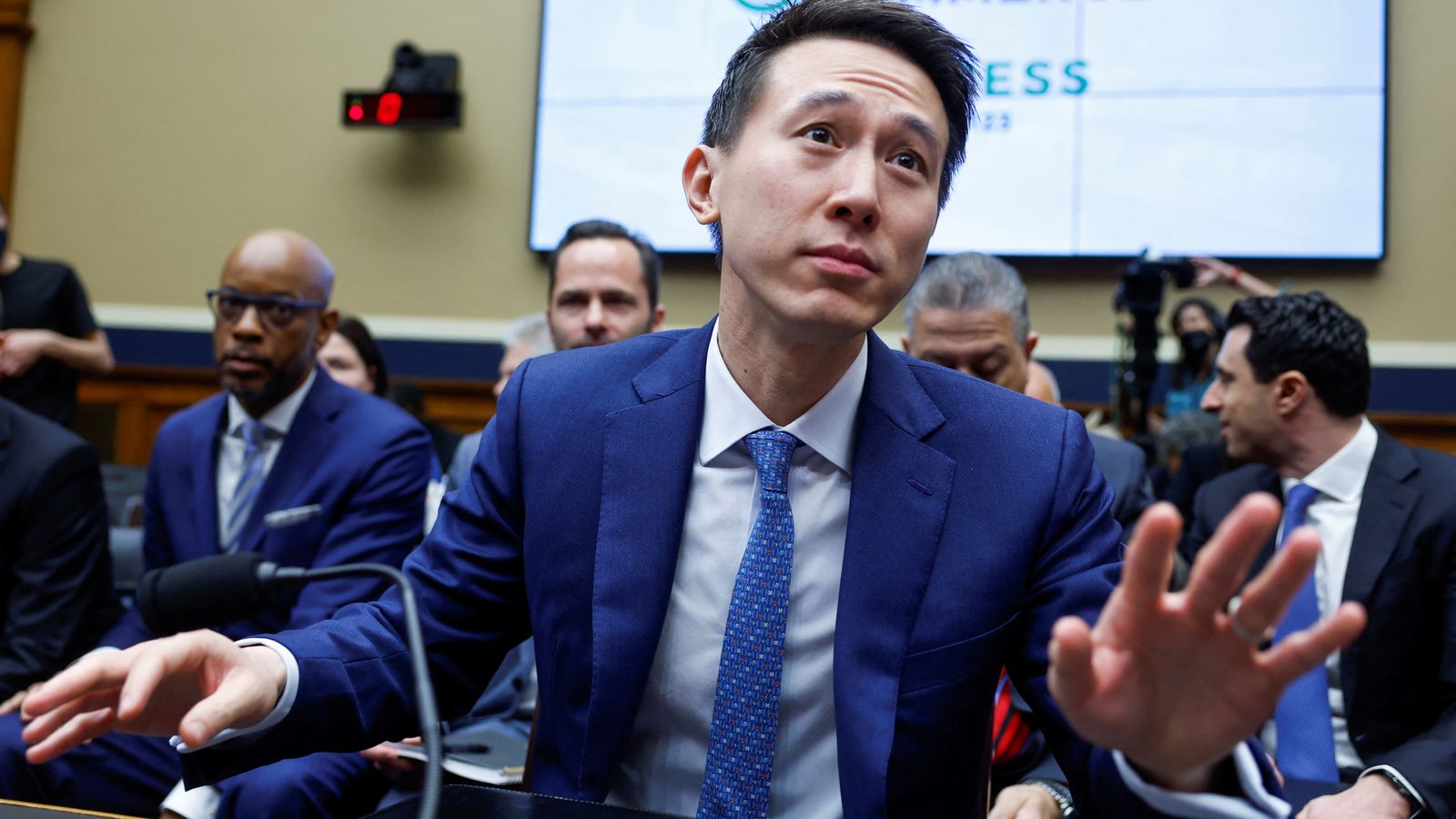TikTok’s chief executive has sought to reassure US Congress that the Chinese-owned video app is not “an agent” of Beijing and poses no risk to national security.
Shou Zi Chew faced hours of tough questioning by deputies in the House of Representatives convinced that the popular app is a “tool” of the Chinese Communist Party.
Some have also raised concerns that TikTok, which has 150 million American users, carries content that can harm children’s mental health.
The deputies on the House Committee on Energy and Commerce pressed Mr Chew on various topics – ranging from TikTok’s content moderation practices to the company’s spying on journalists.
Watch live: TikTok chief executive questioned by US Congress
“Mr Chew, you are here because the American people need the truth about the threat TikTok poses to our national and personal security,” said the committee’s chair, Cathy McMorris Rodgers.
“TikTok has repeatedly chosen a path for more control, more surveillance and more manipulation.”
Mr Chew insisted its parent company ByteDance prioritises the safety of its young users – and denied claims that the app is a national security risk.
Read more:
TikTok to be blocked from UK parliamentary devices
UK minister asks National Cyber Security Centre to look into safety of app
“Let me state this unequivocally: ByteDance is not an agent of China or any other country,” he said.
He reiterated the company’s plan to protect US user data by storing information on servers maintained and owned by server giant Oracle.
Click to subscribe to Beth Rigby Interviews… wherever you get your podcasts
Many deputies on the committee found some of Mr Chew’s answers evasive – with one of them, Tony Cardenas, saying the chief executive was a “good dancer with words”.
Increasing pressure and bans
TikTok has been under increasing scrutiny over its security and data privacy, with concerns it could be used to promote pro-Beijing views or gather user data – something TikTok strongly denies.
In the UK, the app will be blocked from parliament’s devices and network.
The EU Commission and more than half of US states and Congress have already introduced a ban on staff phones over concerns around potential cyber attacks, with the UK government following suit last week.
China said it would oppose any US attempts to force ByteDance to sell the app.






















